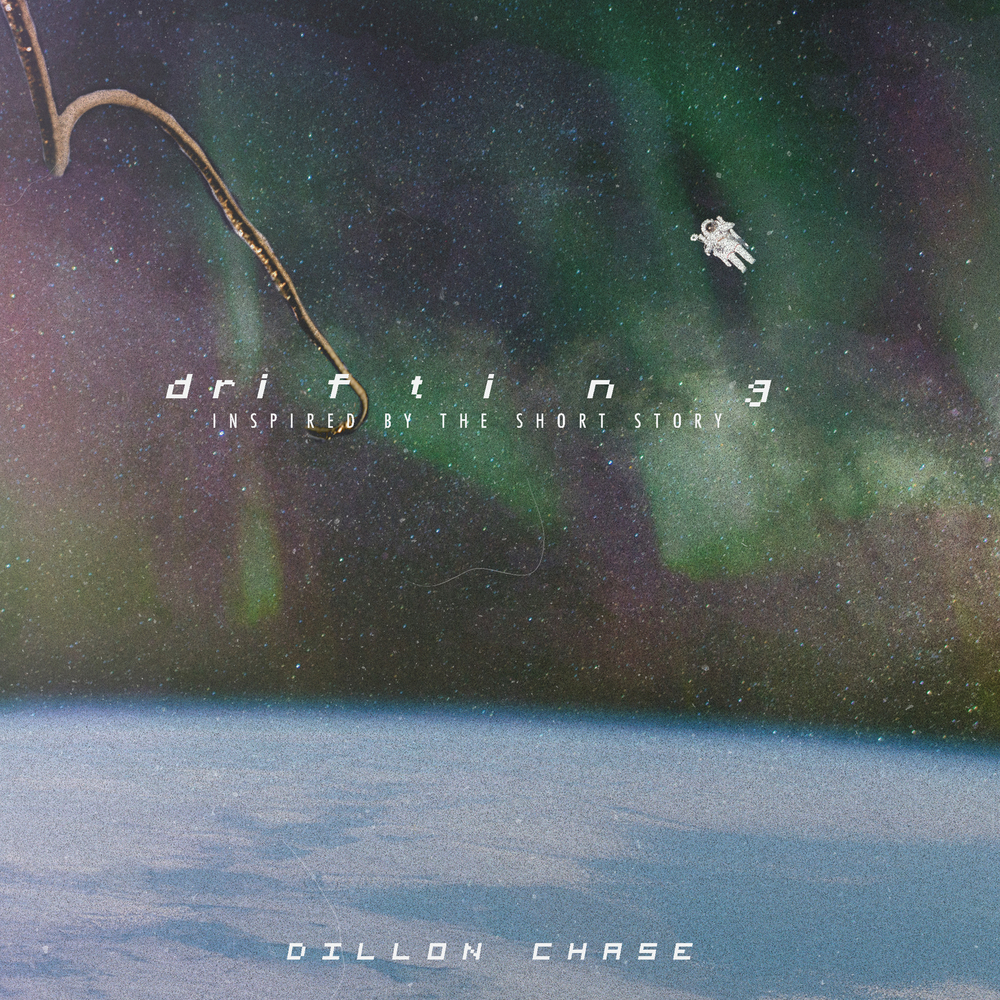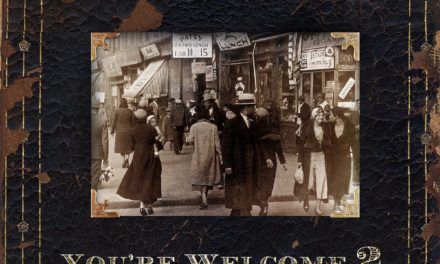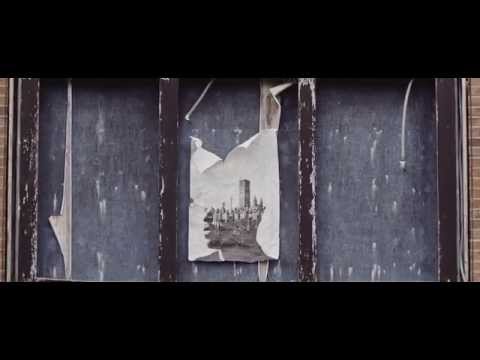“I’m just a servant of Christ, a grateful husband, an empowered father, and a dedicated artist.”
Dillon Chase grew up near Dallas, Texas, and says that “being in Texas, growing up in the South, I was introduced to Christianity. You feel like you’re a Texan so you’re a Christian.” His family went to church occasionally, but it was not a habit.
When he was five years old, he saw his father overdose on drugs for the first of countless times.
“Part of me said, ‘Yeah, I’ve heard about this good and gracious God, but my life experience says otherwise.’”
His mother was an alcoholic, and both parents had stints in rehab during his youth.
Chase would often live with relatives, and said that the life of his parents “was kind of like this revolving door that they would go into rehab, they would get back out. They may do good for a couple months, they may do good for a year almost, but they’d always fall back into it and go back into another rehab.”
“My childhood, it really showed me the deceitfulness and the destructive nature of sin. It made me more grateful for the family I have now, and it showed me that God allows us to have purpose even when we have pain.”
At age sixteen, he decided that he was not going to live for Christ. “I’ve been waiting for Him to take away my parent’s drug addiction and He never did, so I’m just going to do me,” he thought at the time. Chase’s father’s drug habits were increasing, prompting drug dealers and addicts to come to the family’s home regularly.
“When I was sixteen I left my house, went to go live with my aunt. By the time I was seventeen, I didn’t have a place to live. I was going from friend’s house to friend’s house the whole summer my junior year.”
At age seventeen, he became a father. “My friend’s family were Christians [and] they took me in my senior year and they showed me the power of the gospel. It was evidenced in the way they lived their life, how their family was structured.”
Chase wrestled in his mind with the evidence of the gospel in the life of this family, a presence he had never witnessed.
“Their lives have been so drastically changed and I could sense something so compelling.”
A year after he graduated high school, “I finally thought that question was answered. I would always ask God ‘Where were You when this happened? When that happened?’ but it kind of clicked that two thousand years ago God became flesh, He lived the life I could never live. He died a death in my place, in my parents’ place for their sin, and He rose again victoriously and for our eternal good.”
For Chase to know that if he chose to be with God, that God would not fail him the way he experienced with his parents, that made the difference he needed.
“It’s really neat to see that the difference isn’t that I’m a better person or better dad or better husband. The main difference is the Spirit of Christ lives in me, lives in my wife, and empowers us to do family the way that we do.”
Chase started rapping in his early teenage years. “Rap was just something that was a scapegoat for what was going on in my home life and rap gave me the opportunity to create a world I could never have in reality.” When he rapped, he pretended that he had all the girls and money a person could wish for.
As he matured in the second half of his high school years, his music became more serious, and “instead of avoid[ing] my circumstance and avoid[ing] my reality and create this false fantasy, I started using my music to embrace my reality and fill the anger and hurt of my reality.”
After he experienced the love of God when living with his friend and their family, he decided to rap about the reality that he is loved despite the difficulties he faced.
Last Friday, Dillon Chase released a new album titled Drifting.

“I want to establish that we all have a tendency to drift. Whether we realize it or not, there’s no such thing as just holding your ground in your relationship with Christ.”
He says that if you do not continually seek to grow, then your faith will weaken.
The album is inspired by an allegorical story written by Chase about a boy, Adam Sphere, who grows up wanting to be an astronaut. He ends up going to outer space as an adult, but his relationship with his family fails as he is obsessed with going into space.
“There is something captivating about the stars. You have so many false ideologies where stars and the moon and other things are worshiped as deities because they’re so mysterious and so powerful.”
In the story, the pursuit of space travel becomes an idol of Sphere. Chase wants people to find value and purpose pursuing the Creator, God, rather than creation. The album is somewhat of a soundtrack to the story.
“We allow ourselves to get distracted by finite, meaningless things, then we detach from meaningful relationships, including our relationship with Christ. Once we become distracted, once we detach, we enter the drifting phase.”
He says that only God’s intervention can pull us out of a time of drifting. “You’ve drifted so far out but that anchor catches and you get pulled back in.” Chase believes that being able to repent and rebuild your life with God at the center of it is a gift.
With song titles such as “Solar Systems,” “Star Sailor,” and “Black Holes” you would rightly conclude that Chase is a space fan. “I love outer space. Both of my [older] kids are highly interested, so it’s kind of something my whole family is into.” The mysterious nature of outer space seemed to him to be an ideal theme to talk about drifting.

The first song, “Atmosphere,” featuring Micah Smith is about how people are obsessed with everything under Heaven, with creation. “He’s got a really unique voice and he sings kind of creepy, which I like… dark and mysterious and menacing,” said Chase about the feature.
“Solar System” is about how the character, Adam Sphere, meets a girl named Grace. Having been obsessed with the beauty of the stars, he finds himself falling for her.
“The first verse deals with more the Hollywood type of love. It’s love and it’s sweet. Then the second verse takes a sharp right turn and deals with [how] love is hard, love is a choice. Even when we don’t feel it, even when stuff breaks down, I want to rebuild my life with you.”
The following song, “Star Sailor,” is perhaps the happiest song on the album, said Chase. The song captures the moments when a person feels like they are have escaped the pressures of the world and “you’re sailing on the stars and you’re that much closer to God.”
“Black Holes” is “the most gut-wrenching song that we’ve received a lot of feedback on.” The song features Sean C. Johnson and in the first verse Chase talks about his present struggles with his father, who remains struggling with addictions.
The second verse deals with three different people who are struggling to overcome challenges. One friend who inspired this song is rebuilding his life after being released from prison, and how “he can’t see his kids right now due to some probation stuff and how some days he’s tempted to go back to jail because at least when he was in prison, they allowed him visitation.”
Chase says that when everything seems to be going wrong despite our best efforts, we can get angry at God and think that He has failed us or is absent. At the end of the song is a portion of a spoken word poem Chase wrote called “I Believe, but Help my Unbelief,” because “we didn’t [want to] leave the song open without an answer back from Jesus and we let the spoken word end the song and address everything in the first two verses.”

The seventh track on Drifting is “Countdown” and references a scene in the story where Adam Sphere is in the space shuttle ready to blast off, and the countdown is aloud to prepare for the departure.
“For me in my life there’s another countdown that I can almost feel and it’s the countdown before I fall into sin. Maybe there is tension in my marriage and this countdown is going off. You can either humble yourself and reconcile with your wife [or] you can just keep letting this countdown go down and then you’re gonna blow up.”
Chase says “Countdown” feels dark, but has a trap sound. “The song doesn’t have a whole lot of redemptive quality. This marks the distinction, a section of my album that you kind of have to go through the dark moments for the next four songs…”
“Detached” is about falling away from God and community and how it allows us to have a greater tendency to sin. Following that is “Drifting,” “which is total, reckless abandonment from the things that should matter most. Its helplessness to falling victim to your sin and you just feel like you’re drifting away from your family, you’re drifting away from God. You feel like you’re going to die.”
At this point in the album, Adam Sphere is at his lowest point, “and that’s when this beautiful moment happens of ‘Transcendent Light.’ A light that is from somewhere other than any natural source and that’s the light of Jesus.” Thematically, Chase believes this song is a perfect fit, and that is is a must to have a redemptive song amongst the darkness.
The final song is called “Over Under” and goes with the conclusion of the story. The track is about “finding our identity, finding our purpose, running our race based off who we are under Jesus. You’ve got to get over the cares of this life and under the Son of God, Jesus, to truly be anchored.”
Outside of music, he loves spending time with his wife and kids. “When I’m not doing music and [am] not on the road, I have to be really intentional about being locked into spending time with my family.”
Overall, with Chase’s album he wants
“just to encourage everyone man to fight the drift. Recognize that you have the tendency to drift and understand that the way you work against that is by weighing down your anchor in Heaven.”
Get Drifting on iTunes, Amazon, or Google Play.
Get the short story “Drifting” from Amazon.





